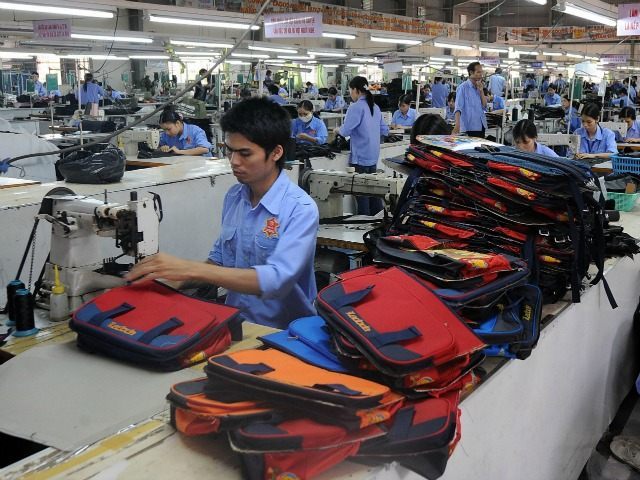Vietnam appears to be the biggest winner among the 12 countries in the Trans-Pacific Partnership (TPP) trade pact, says multiple news reports.
“This is really transformational for Vietnam,” IHS Global Insight’s Asia Pacific Chief Economist Rajiv Biswas told ABC News. “They’re going to get a very big advantage over many other exporters of garments into the U.S. market.”
Amid growing opposition, President Barack Obama is already promoting the trade deal with the other 11 countries, after it was completed last week. The deal must be debated and approved by Congress.
Now, the trade pact goes to lawmakers in each country for approval, but according to Voice of America, it should quickly get a stamp of approval in Vietnam.
VOA noted, “officials and the media have overwhelmingly welcomed the move, it appears headed for an easy ride.”
Dinh Xuan Thao, chairman of the legislature’s Research Institute, said he expects the deal will be quickly approved. “Vietnam has been fully prepared for TPP. As it decided to join the free trade agreement, it accepted to face short-term difficulties for greater benefits in the long run. The government has informed us about that during the negotiation process. We are united in that regard. Therefore, there should be no hurdles in approving it,” he said.
Vietnam is expected to get a boost in the textile and clothing industry, which could impact clothing and footwear jobs in countries like Mexico and Canada.
ABC News reports that foreign investment is predicted to spike in Vietnam as well. “Manufacturers such as Samsung Electronics have been setting up new factories in Vietnam for several years, underscoring its rising attractiveness over China, a longtime global manufacturing powerhouse that’s been hit by surging labor costs,” reported ABC News.
Additionally, ABC News reports that Vietnam’s economy will increase by an extra 11 percent in 10 years because of the TPP.
By 2025, Vietnam’s economy will be 11 percent, or $36 billion, bigger than without the trade deal while exports will be 28 percent larger, according to a Eurasia Group report released in July.
“This percentage increase dwarfs the gains made by any other country,” the report said. Vietnam will become the “preferred destination” for low-cost manufacturers looking to stay competitive, with industries relying on cheap labor, chiefly clothing, shoes and textiles, set to reap the biggest gains, it said.
Former Vietnamese lawmaker Nguyen Minh Thuyet told VOA that the “TPP deal will help Vietnam diversify its trading partners and lessen its reliance on its giant northern neighbor, China.”
China remains Vietnam’s largest trade partner with trade revenue totaling close to $50 billion this year, according to VOA.
“Vietnam’s current trade balance is tilted toward China, and major infrastructure contractors in Vietnam are Chinese, so Vietnam relies on China greatly,” said Thuyet. “Joining TPP, Vietnam would have more partners, and that partnership could help Vietnam to reduce its dependence on China in economic terms. It is also a desire of most Vietnamese; but that requires determination and sound economic policies.”
China wasn’t part of the TPP, but reports have surfaced that the country may want to join in the future.
GOP frontrunner Donald Trump – who doesn’t support Obama’s TPP – previously told Breitbart News having China as part of the trade deal would negatively impact American jobs, and worries about currency manipulation.
Other GOP presidential candidates who have shied away from the deal – particularly because of the lack of transparency surrounding the draft – include: Gov. Mike Huckabee, Carly Fiorina, Sen. Ted Cruz and Dr. Ben Carson.
The U.S. Congress is expected to take up the trade pact early next year.

COMMENTS
Please let us know if you're having issues with commenting.